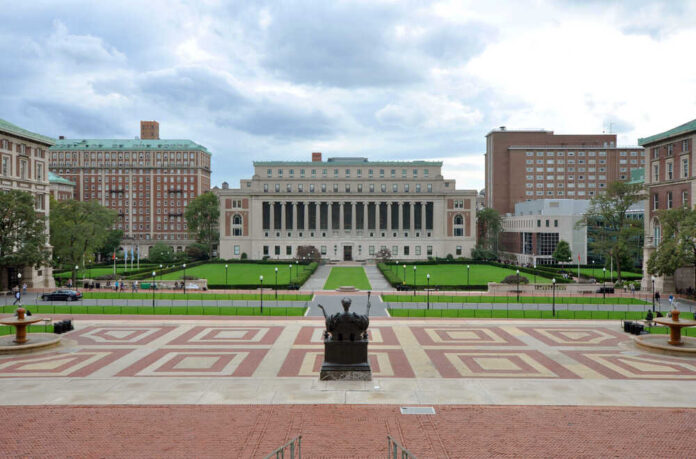
Columbia University’s Vagelos College of Physicians and Surgeons Class of 2025 made headlines after choosing to recite a revised version of the Hippocratic Oath that included tenets of critical race theory at their White Coat Ceremony last August. The new oath claims to reflect the values that the students wished to uphold as they entered their medical training, including a commitment to “acknowledge and embrace the diversity that exists within all communities and the formative influence that the Washington Heights community will have on my future as a physician.”
The new oath-writing process began in 2020, but the Class of 2024 needed more time to get theirs finalized. So instead, they helped the Class of 2025 write their oath over several weeks during the summer of 2021.
This year’s ceremony took place in person at the Armory with limited faculty and guests. It was also available via Zoom. The ceremony began with the traditional welcome and distribution of personally engraved stethoscopes to each of the 140 students in the incoming class.
The Class of 2025 has more students from underrepresented minority backgrounds than any previous class at the Columbia medical school. From now on, each incoming class will have the opportunity to create its oath, so future classes will likely make further revisions to reflect their ever-narrowing political views.
If this isn't some straight-up newspeak from the Ministry of Truth, I don't know what is. #DEI needs to D-I-E. https://t.co/DVpBfljKqf
— Sarah Parshall Perry (@SarahPPerry) February 14, 2023
The new oath did sit well with some conservative Twitter accounts, with several calling it a form of “newspeak from the Ministry of Truth.” Yet, according to CriticalRace.org, which monitors critical race theory curricula and training in higher education, 58 of the nation’s top 100 medical schools have some form of mandatory student training or coursework devoted to the belief that racism is systemic in America’s institutions.
While the new oath has received criticism from some, the students of the Columbia medical school argue they see it as a reflection of the values they wish to uphold as they enter the medical profession.
They believe that acknowledging and embracing diversity and confronting systemic issues in the institutions upheld by the medical profession will ultimately lead to a more inclusive, equitable field of medicine. However, how that will improve the practice of medicine and health outcomes for patients is unexplained.














